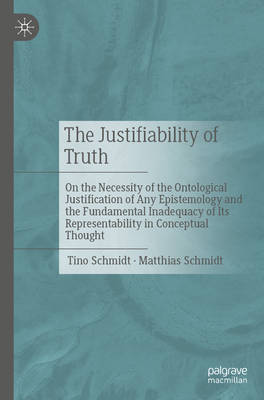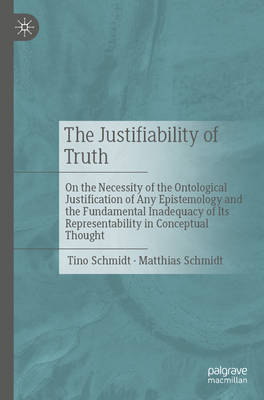
- Afhalen na 1 uur in een winkel met voorraad
- In januari gratis thuislevering in België
- Ruim aanbod met 7 miljoen producten
- Afhalen na 1 uur in een winkel met voorraad
- In januari gratis thuislevering in België
- Ruim aanbod met 7 miljoen producten
The Justifiability of Truth
On the Necessity of the Ontological Justification of Any Epistemology and the Fundamental Inadequacy of Its Representability in Conceptual Thought
Tino Schmidt, Matthias SchmidtOmschrijving
The starting point of this book is the question of to what extent knowledge can be objectively justified and to what extent our statements, in their claim to be true, must necessarily presuppose a reference to a world given independently of our subjective experience. Overall, it is to be shown that, first, every theory of truth must in some way be based on correspondence-theoretical assumptions (i.e., truth is the agreement of a statement or thought with reality). Second, however, that every form of the correspondence theory necessarily leads either to internally contradictory systems (especially Kant, Fichte, Hegel, Aristotle, and Popper) or to self-contained doctrines that are, by definition, not falsifiable (Thomas Aquinas, the Stoics, Plato, Wittgenstein, Habermas). Conclusion: Since every epistemology must include correspondence-theoretical assumptions (e.g., the ontological principle of a correspondence between being and consciousness), there is always an explanatory gap inherent in them.
Specificaties
Betrokkenen
- Auteur(s):
- Uitgeverij:
Inhoud
- Aantal bladzijden:
- 495
- Taal:
- Engels
Eigenschappen
- Productcode (EAN):
- 9783662727553
- Verschijningsdatum:
- 27/02/2026
- Uitvoering:
- Paperback
- Formaat:
- Trade paperback (VS)
- Afmetingen:
- 155 mm x 235 mm

Alleen bij Standaard Boekhandel
Beoordelingen
We publiceren alleen reviews die voldoen aan de voorwaarden voor reviews. Bekijk onze voorwaarden voor reviews.









